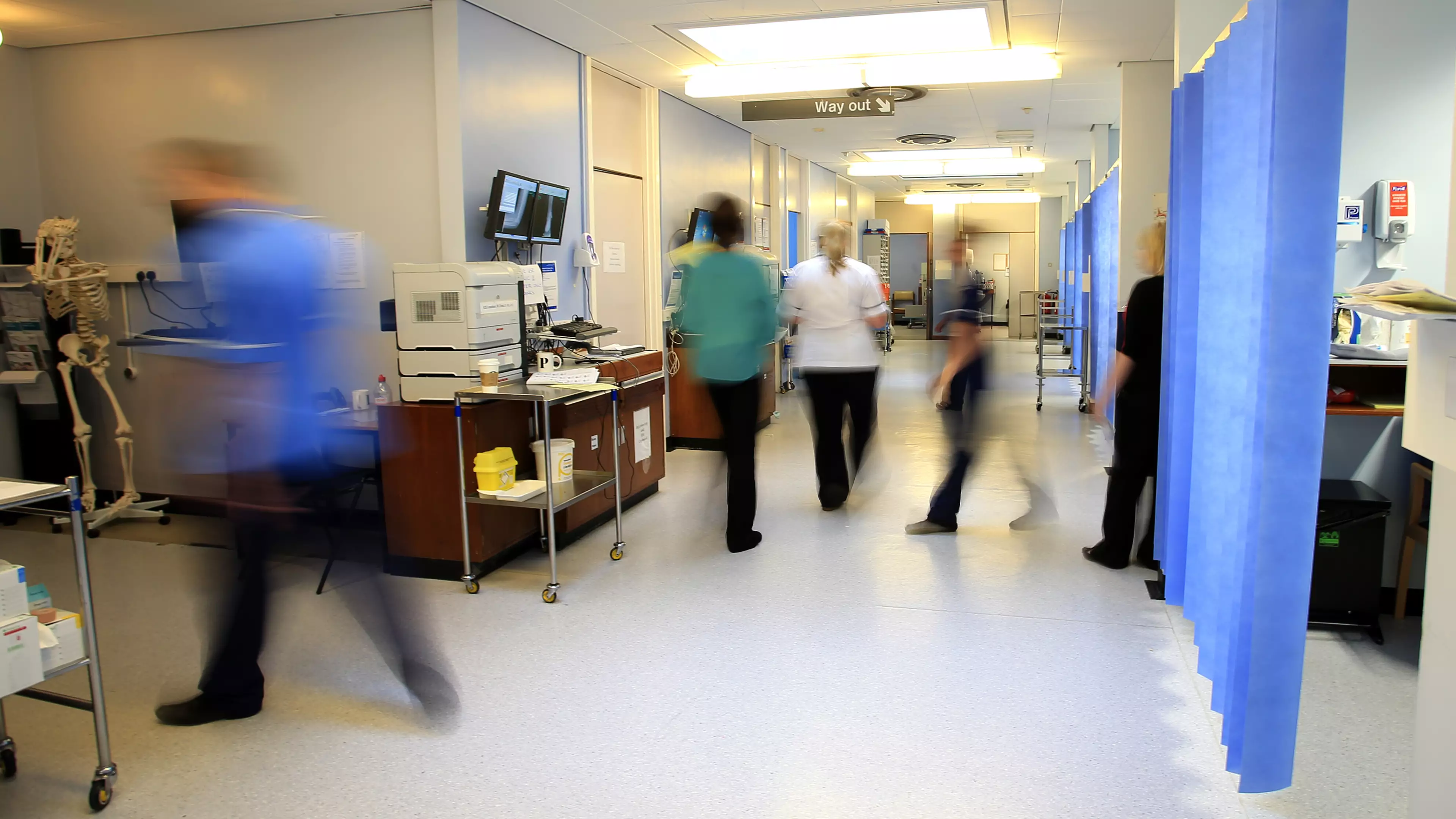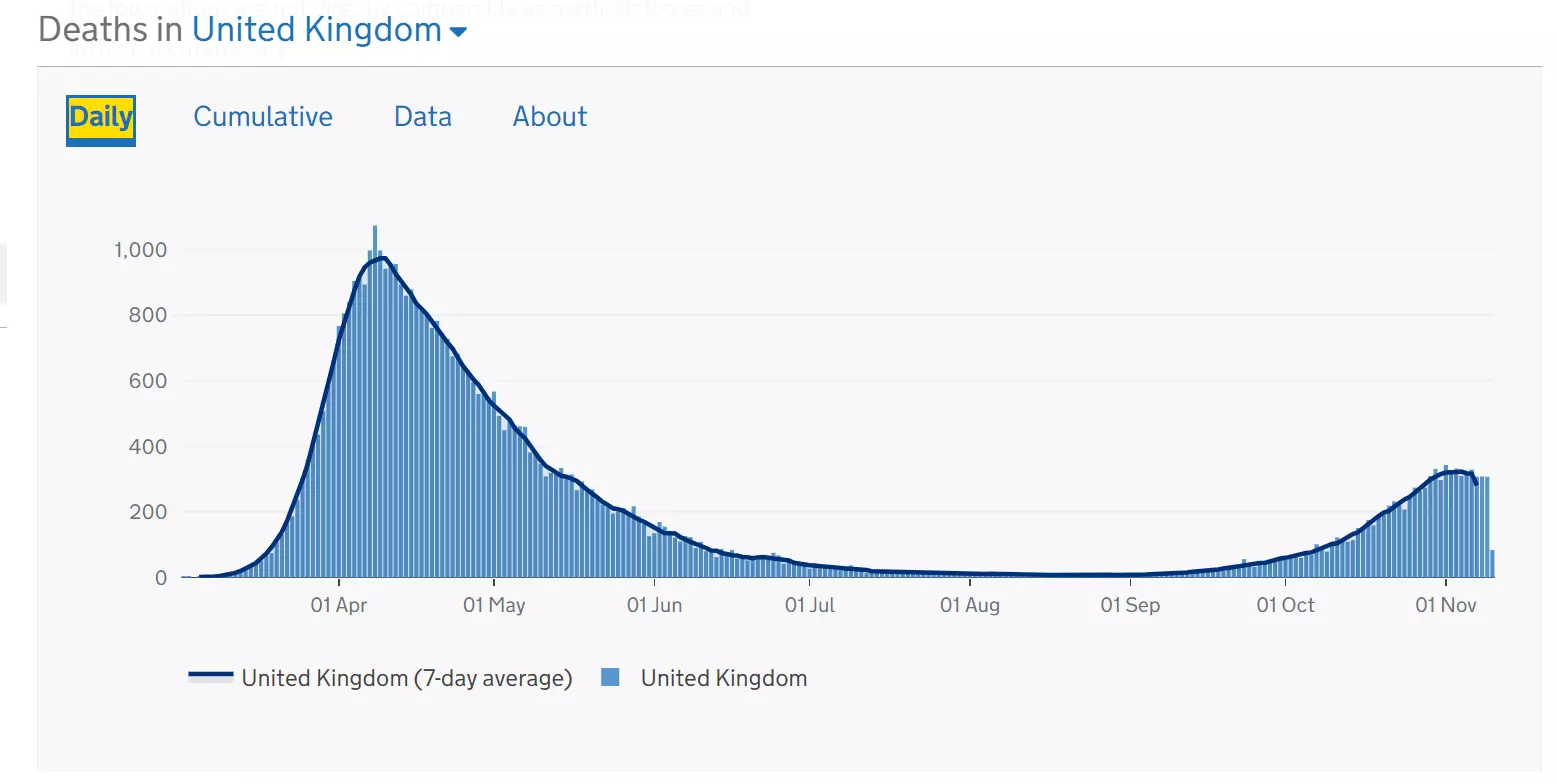
More than 50,000 people in the UK have now died with coronavirus, according to government figures.
A further 595 deaths were confirmed today (Wednesday 11 November), bringing the country's total to 50,365.
The UK is the first country in Europe to pass 50,000 deaths and only the fifth in the world to reach the grim landmark, along with the United States, Brazil, India and Mexico.
Advert
The daily death rate rose rapidly throughout October, but it is still well below the rate during the first peak in April, when almost 1,000 people a day were dying after contracting the disease.

A further 22,950 cases were confirmed today, with a total of 1.2 million recorded in the country since the pandemic began.
The government's chief scientific adviser, Sir Patrick Vallance, said back in March that keeping the number of deaths in the country below 20,000 would represent a 'good result'.
Advert
Speaking at a press conference on Monday, Boris Johnson said there 'is a long way before we have got this thing beat'.
He added: "The biggest mistake we could make now would be to slacken our resolve at such a critical moment."
The prime minister was speaking following the announcement that a Covid-19 vaccine was found to be 90 percent effective in clinical trials.
Advert
According to Pfizer and BioNTech, the jab has been tested out on 43,500 people in six countries, with no safety concerns detected - and only 94 people in the trial went on to develop Covid-19.
According to the results from the initial analysis, two doses three weeks apart are needed for it to be effective.
There is, however, no definitive answer on how long the immunity lasts.
Speaking about the breakthrough, Dr Albert Bourla, the chairman of Pfizer, said he hoped this would help bring about an end to the suffering being experienced around the world.
Advert
He said: "Today is a great day for science and humanity. The first set of results from our Phase 3 Covid-19 vaccine trial provides the initial evidence of our vaccine's ability to prevent Covid-19.
"With today's news, we are a significant step closer to providing people around the world with a much-needed breakthrough to help bring an end to this global health crisis.
"While we are all in the midst of a second wave and many of us in lockdown, we appreciate even more how important this milestone is on our path towards ending this pandemic and for all of us to regain a sense of normality."
Featured Image Credit: PATopics: UK News, Coronavirus